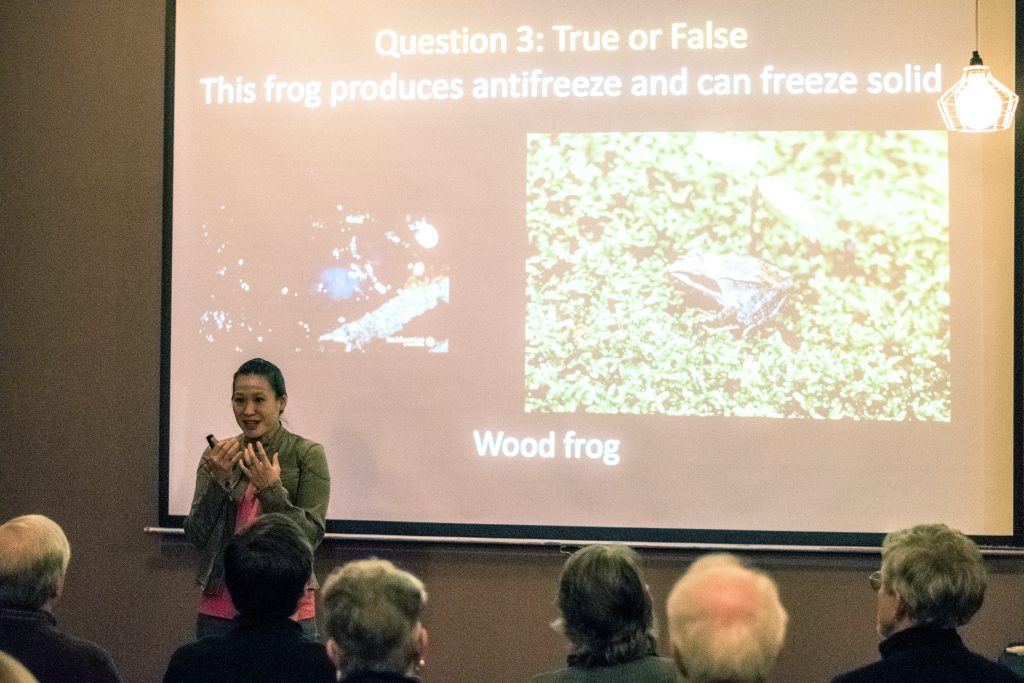As customers dined in Lost Dog Cafe on Tuesday evening, more than 70 people gathered in a private room at the back of the restaurant to hear Binghamton University researchers speak on amphibians.
The age of the crowd was diverse — attendees ranged from a toddler to a few elderly couples, with a group of BU students in the middle. Science Pub BING aims to connect BU research with local community members, regardless of their age, to teach science in a more casual setting, according to Julie Weisberg, one of the event organizers and director of public communications at Family Planning of South Central New York.
“Just as there is a thirst for arts, culture and music [in Binghamton], I bet you people are interested in science topics,” Weisberg said while explaining how she got involved with the event. “And not just for science folks — for everybody.”
Drinks in hand, attendees took their seats and the event began. Jessica Hua, head of a wetlands ecology laboratory and an assistant professor of biology, came front and center to kick off the event with frog trivia. Each question asked about the shape, color or sound of certain frog species and after each answer was revealed, Hua took a few minutes to discuss them.
Hua’s ability to effectively communicate her research, according to Nancy Coddington, another Science Pub BING organizer and director of science content, services and programming at WSKG Public Media, is why organizers wanted her to lead the event.
“[Hua] is definitely very inspiring and I love the way she infuses [communication] into her work and teaches her students how important that is,” Coddington said. “It doesn’t matter how smart you are — if you can’t communicate what you know, it’s as good as not knowing anything.”
Alongside Hua, several Ph.D. candidates from her laboratory also gave brief presentations on human pollution, invasive species and parasites in relation to their effects on amphibians.
An audience member pointed out that some of their research appeared to show that plastic pollution in wetlands can benefit amphibians through the killing of parasites. Hua responded by explaining that this is not the case as local ecosystems are sensitive and need host-parasite interactions. She said false connections like this are exactly why scientists should be the ones presenting their work.
“A pesticide company picked this [false connection] up, and basically wrote that pesticides are beneficial to amphibians,” Hua said. “We absolutely need good science communication, which is why we are all here today trying our very best to make sure we are the ones telling the research, not some third party that can take our research and twist it in a way that is beneficial to them.”
One of the attendees, Sheila Moore, a fourth-year Ph.D. candidate studying ecology, said she came to the event to support the other Ph.D. candidates from her department and was shocked at the number of people in attendance.
“The turnout was super impressive,” Moore said. “I didn’t expect so many people to come from outside of the University and everyone seemed super interested, so that was cool to see.”
The organizers said more people showed up than expected, and they hope to carry that excitement to the next event in March. They plan to hold an event every second Tuesday of each month, with each one focused on a different scientific topic. Coddington said March’s event will center around genes.



